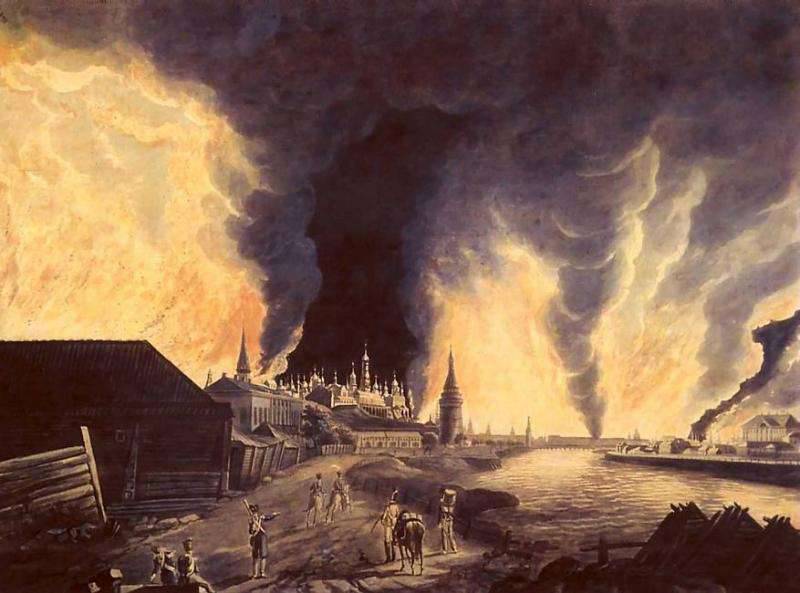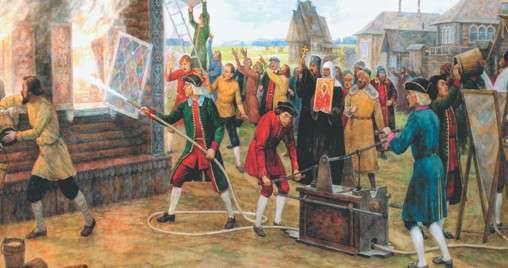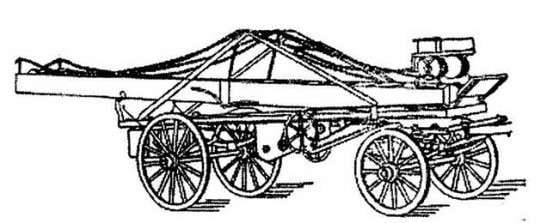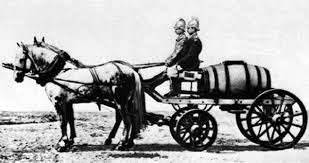Day of fire protection. How the fire brigade of Russia was created and strengthened

Fires have always brought a lot of grief to people. They burned to the ground at home and even entire neighborhoods and villages, people were left without property and livelihoods. But, worst of all, fires often led to human casualties. Many Russian cities more than once were subjected to terrible fires. Among them - Vladimir, Suzdal, Novgorod and, of course, Moscow. It burned out completely in 1238 - during the invasion of Russia by the Batu hordes, then devastating fires were in Moscow in 1335 and 1337, and in 1356, almost the whole of Moscow, including the Kremlin, was burned out. The scale of fires in medieval Russian cities is attested by at least the fact that a fire was recognized as large when it destroyed several thousand courtyards. Fires broke out regularly and all Russian cities without exception suffered from them. Therefore, as the centralized government strengthened in the Russian state, the question of streamlining the organization of fire fighting also became acute. In order to extinguish fires within large cities in an organized way, there was not enough of one initiative of residents - volunteers. The creation of detachments of professional firefighters, and the development of certain rules of behavior with fire and extinguishing fires if they occurred were required.
Back in 1495, it was ordered to demolish all wooden buildings located at a distance of less than 100 fathoms (213 meters) from the walls of the Moscow Kremlin. The lawsuit 1497 g. Set severe punishment for arson - the death penalty was awaiting the arsonists. In 1504, in Moscow, a special fire and security guard was created, which served as the actual fire brigade and police functions. Her responsibilities included protecting the city from fire and crime. Moscow was divided into sections, at the ends of the main streets there were lattice gates - outposts. At each outpost, the watchman was on duty. From every ten yards exhibited one guard, a group of guards headed by trellis clerks. General control over the duty of the guard and the observance of fire safety rules, as well as the management of fire extinguishing, was carried out by nobility from among the nobility.
In 1624, in Moscow, a professional fire brigade was created at the Zemsky Dvor. It consisted of 100 "yaryzhnyh" (lower police officers), contained by the state. In 1629, the number of the team increased to 200 people, and in the summer, due to increased fire risk, their numbers increased to 300 people. On the equipment of the team were barrels of water, water pipes, buckets, shields, axes. The maintenance and equipment of the team was paid by the state from the funds collected by the Zemsky Order from the population in the form of taxes. In addition, at the Zemsky Dvor, a permanent 20 watch of cab drivers was organized on a horse-drawn carriage, which, as soon as the alarm sounded, were to be delivered to the fire brigade to the site of the fire. In 1657, roundabouts were instructed to organize citizens to extinguish fires and punish those who evade duty. “Fire deserters” were punished with batogs or imprisoned for several days.

Further improvement of the fire protection system in the Russian cities took place in the Petrine era. In 1689, Peter I decided in the event of major fires in the capital to involve troops in their extinguishing. In the XVIII century there is a further formation of the national fire department. With 1718, military fire brigades are formed in the Russian army under the guidance of officers. In order to increase the level of fire safety, the construction of wooden houses was banned in the new Russian capital St. Petersburg. A number of measures aimed at preventing possible fires were also introduced. First, it was forbidden to build furnaces and chimneys against wooden walls, the top of the pipe was supposed to be placed on the yard above the roof. Secondly, 18 June 1718 was issued a decree ordering all residents of the capital to clean the chimneys in their homes once a month. Observing round heads included the monitoring of furnace heating and the state of chimneys.
For violations of fire safety rules, a fine was imposed, and noble people paid approximately twice the amount than commoners - 16 altyn and 4 money (commoners paid 8 altyn and 4 money). Citizens were required to post signs on their houses with images of tools with which the owners in the event of a fire will put out to extinguish it. In 1728, an order was issued to the governors and governors, which included a special section on “Looking at buildings in cities and on saving fires”. In fact, it was the first fire supervision document. Since 1718, the extinguishing of fires was under the authority of the Chief Police Officer of St. Petersburg, whose position was established this year. In the subordination of the general master of police was the office, in charge of fire activities. In 1722, a similar structure was created in Moscow. The offices that were in charge of the fire safety of Russian cities were called fire offices or fire expeditions.
In the same 1722, a professional fire unit is being created at the Admiralty - a fire brigade. It consisted of workers who were on duty in two shifts. During the fires, the team also used the help of other craftsmen and workers of the Admiralty, sailors. Large fires in Moscow, Pereslavl and several other cities in 1737 forced the Russian authorities to attend to the further improvement of fire prevention measures. Special military guards from military units stationed in the cities were formed. In cities where there were no military units, special patrols formed from civilian officials provided fire safety.
In 1740, the order was adopted to equip army regiments and other military units with fire-fighting equipment. On the regiment relied filler pipe, a tub of water and canvas. The battalions received forks, ladders, large hooks with chains. On the equipment of the mouth were 25 axes, buckets, shield, shovels, four hand tubes and two small hooks. For the convenience of transporting fire equipment, six horses stood out. In the event of a fire, each company sent half of the personnel to extinguish it, and the drummer relied on the outfit. The other half of the company personnel remained at the disposition of the unit, but in a state of full combat readiness and, if necessary, advanced to the aid of the first half company.

However, ordinary army units lacked special fire fighting skills, which significantly hampered their use in fire fighting. Nevertheless, the order of departure of military units to extinguish fires in St. Petersburg was maintained for a long time. In the event of a fire on the left side of Nevsky Prospekt and Nevsky Monastery, units of the Preobrazhensky, Horse and Artillery regiments of the Guards went out to extinguish. The operational reserve was the Life Guards Izmailovsky, Ryazan and Semenov regiments, which, if necessary, in order of battle put forward to the aid of the regiments who had come out. Since 1747, all government agencies were equipped with special fire-fighting equipment, and in the Senate, the Synod, colleges and offices, fire brigade posts were established, at which soldiers of parts of the capital garrison were on duty.
The need to further improve the fire brigade in St. Petersburg and Moscow led to the formation of full-time fire fighting units. Thus, with 1772, a special staff of officers “with fire-fighting instruments” was approved with all police units of the Russian capital. The fire brigade consisted of a firemaster, 106 firefighters and 10 cab drivers. The maintenance of the fire brigades was carried out by the military, but in 1792 all the fire brigades of the capital were transferred to the control of the police. In Moscow - the second largest city of the Russian Empire - in 1784, 20 fire stations were created. In order to extinguish the fires, citizens were involved in the number of 2824 people from all homeowners. Then, a fire expedition led by the firecord was established at the Moscow Chief of Police. The expedition consisted of 20 firewall masters, 61 workshop, in addition to 75 citizens were assigned to fire units for each fire unit, that is, 1500 people were assigned to Moscow. Each unit carried a duty of 25 people per shift.
The Moscow fire fighting company and all the firemasters of the city, as well as two shifts of firefighters with tools, traveled to all the major fires. But the accumulation of firefighters and their assistants from among the townspeople on fires only impeded the organized extinguishing of the latter, therefore, in 1808, the order was established in accordance with which the departure of fire teams to extinguish fires of varying degrees of complexity was determined. In addition, in the time of Catherine II, in order to avoid interference from firefighters and crowding on fires, it was forbidden to approach fires to everyone except those directly involved in extinguishing them. If necessary, the Governor-General could allocate additional forces from among the military units of the garrison. All fire brigades involved in extinguishing the fire were under the operational control of the local police authorities. This also applied to military units whose personnel were involved in fire fighting.
 For a long time, the personnel of professional fire brigades of Russian cities were recruited from among the soldiers unfit for service in combat units. It is noteworthy that such a responsible and physically difficult business as putting out fires was entrusted to people unfit for military service. However, even such teams, recruited from non-combatant soldiers, showed their greater efficiency compared to the simple citizens who were mobilized to put out fires, who lacked not only special training, but also proper discipline for participating in fire fighting. Nevertheless, the practice of attracting ordinary people to extinguish fires in cities and rural settlements continued. In addition to professional fire brigades, voluntary or public fire brigades began to appear in the 19th century.
For a long time, the personnel of professional fire brigades of Russian cities were recruited from among the soldiers unfit for service in combat units. It is noteworthy that such a responsible and physically difficult business as putting out fires was entrusted to people unfit for military service. However, even such teams, recruited from non-combatant soldiers, showed their greater efficiency compared to the simple citizens who were mobilized to put out fires, who lacked not only special training, but also proper discipline for participating in fire fighting. Nevertheless, the practice of attracting ordinary people to extinguish fires in cities and rural settlements continued. In addition to professional fire brigades, voluntary or public fire brigades began to appear in the 19th century. It is surprising that the first such team appeared not in St. Petersburg or Moscow, or even in any provincial city, but in a small Ostashkov Tver province. Here in 1843, a volunteer fire brigade of local residents was created. After 17 years after its creation, there were about 400 people in it, among whom were mainly craftsmen and artisans - blacksmiths, metalworkers, foundry workers, representatives of other working professions. The positive experience of Ostashkov aroused interest in other cities of the Russian Empire, and with 1863, the process of mass appearance of public fire brigades in the cities of the country began. The importance of voluntary fire brigades was determined by the fact that most of the country's settlements were not covered by a professional fire guard. The most difficult situation was in the countryside, where there was no fire protection at all - neither professional nor voluntary, and the resulting fires extinguished the villagers themselves to the best of their ability. Most often, the fires in the villages were catastrophic, there were not cases when entire villages were burned out. Fire victims wandered throughout Russia, joining the ranks of professional beggars and tramps.
Fire brigades acted only in large or strategically important cities, and in small towns all hope remained for volunteers — firemen recruited from among ordinary citizens. They, if necessary, fought with the fire element and, at times, saved entire cities and towns from it. In 1861, the Voluntary Fire Society was established in Volkhov, in 1862 a similar structure appeared in Revel (now Tallinn, the capital of Estonia), in 1864 in Yuryev (now Tartu), in 1868 in Kamenets -Podolske. By 1890, the 60 volunteer fire service operated in the Russian Empire, and three years later the Imperial Russian Fire Society was officially established.
In addition to the development of voluntary fire societies, the strengthening of a full-time fire department continued. In 1853, fire brigade staffs in cities were approved, which included manning regulations and equipment with fire tools and horses. In 1858, the military-police telegraph began to be used for the needs of the fire brigade. And with the 90's. XIX century. - phone. In 1908, the first fire protection vehicle appeared in Moscow.
For a long time of its development, the Russian fire protection has come a hard way, talk about which can be long and very exciting. The organizational structures and charters of the fire brigade, uniform and equipment changed, fire equipment was improved, fire extinguishing methods developed. Fire safety has become a whole science, which is now being studied in special higher educational institutions. But the basis of the fire brigade has always been and remains people engaging in battle with fire. Honor and praise to them, health to the living and eternal memory to the departed. Happy holiday, firefighters of Russia!
Information